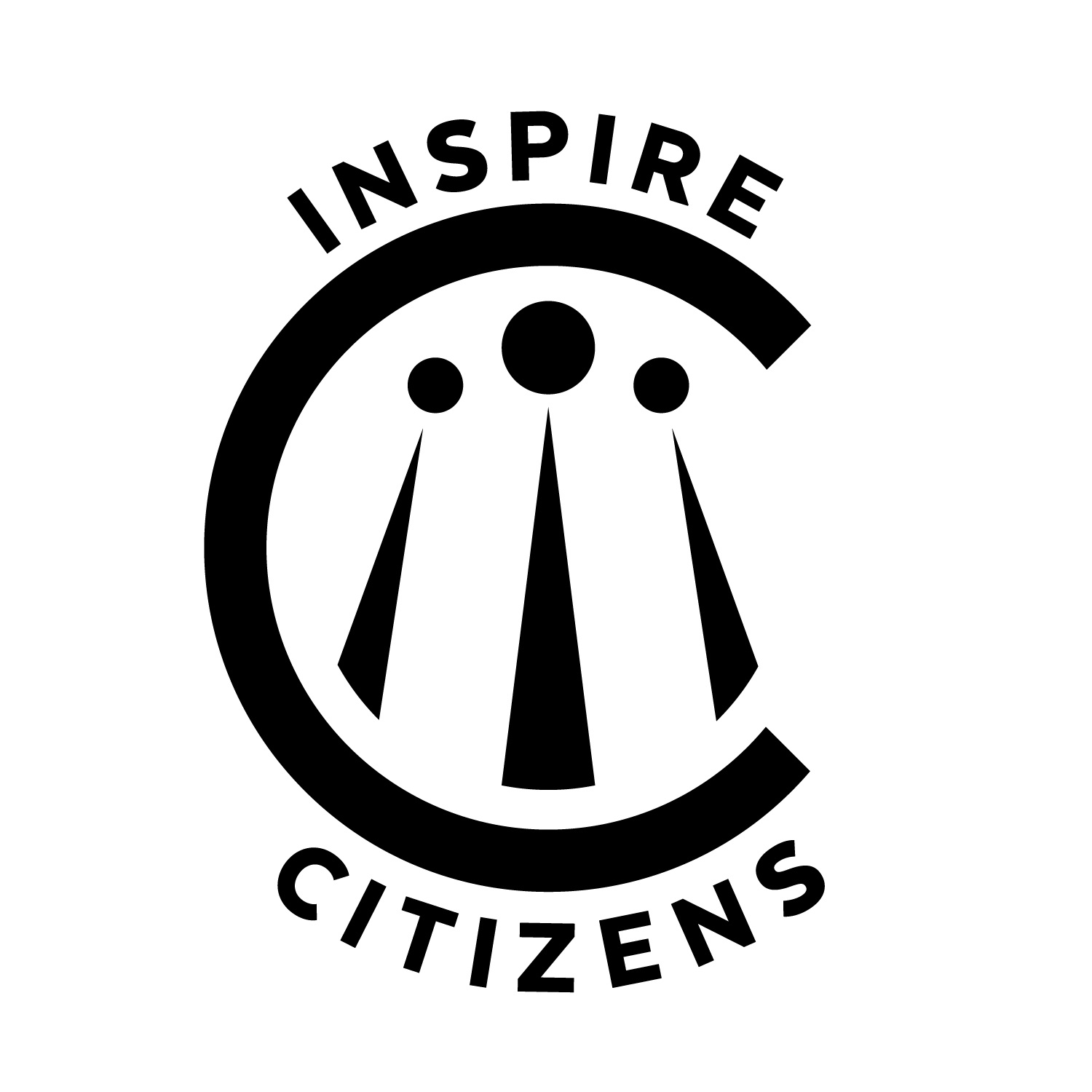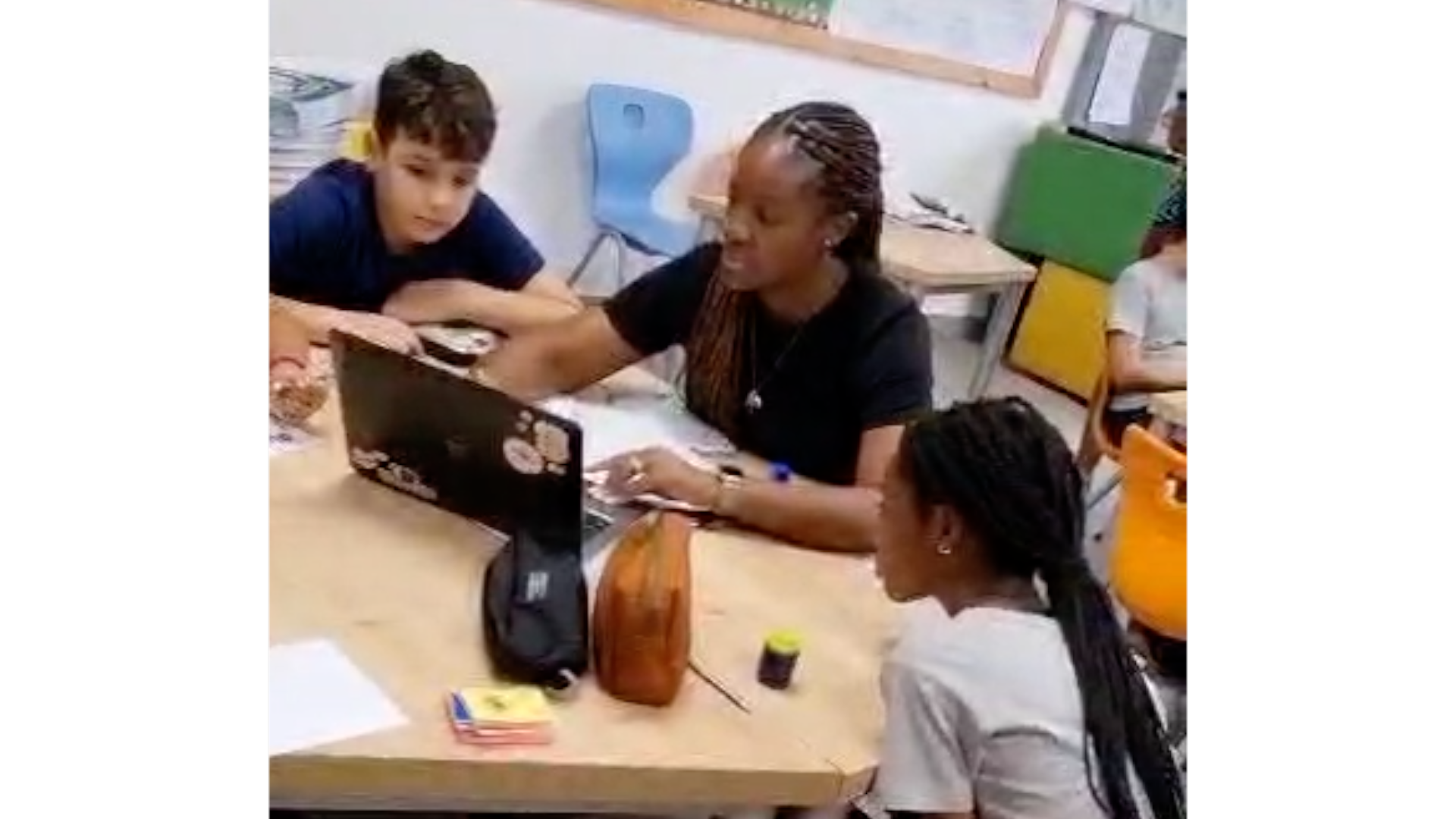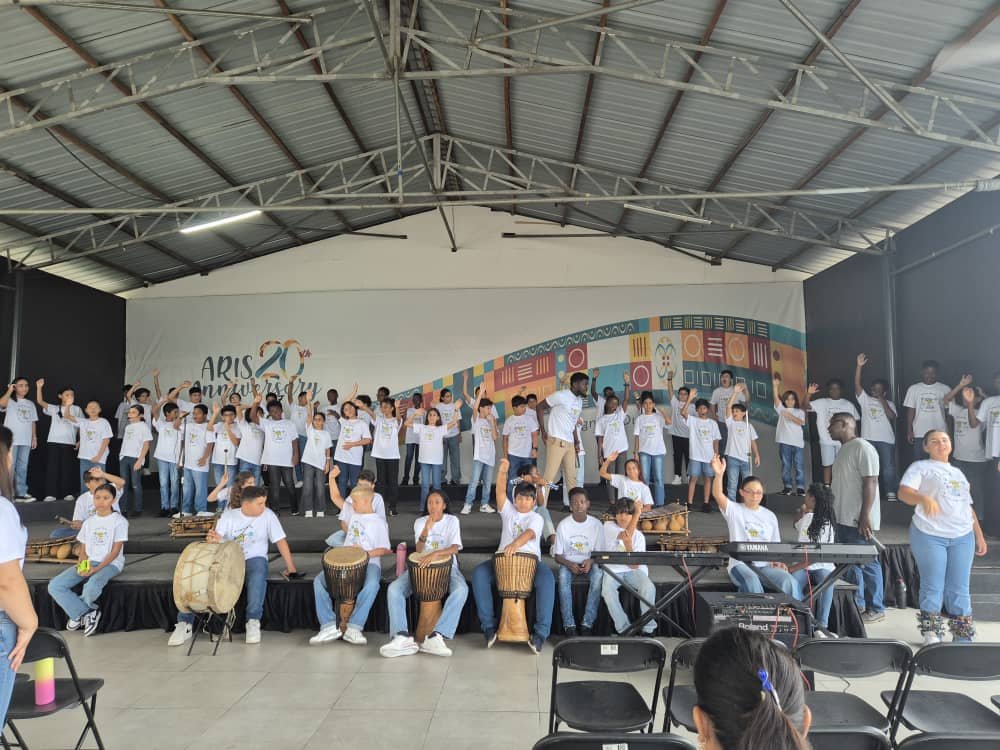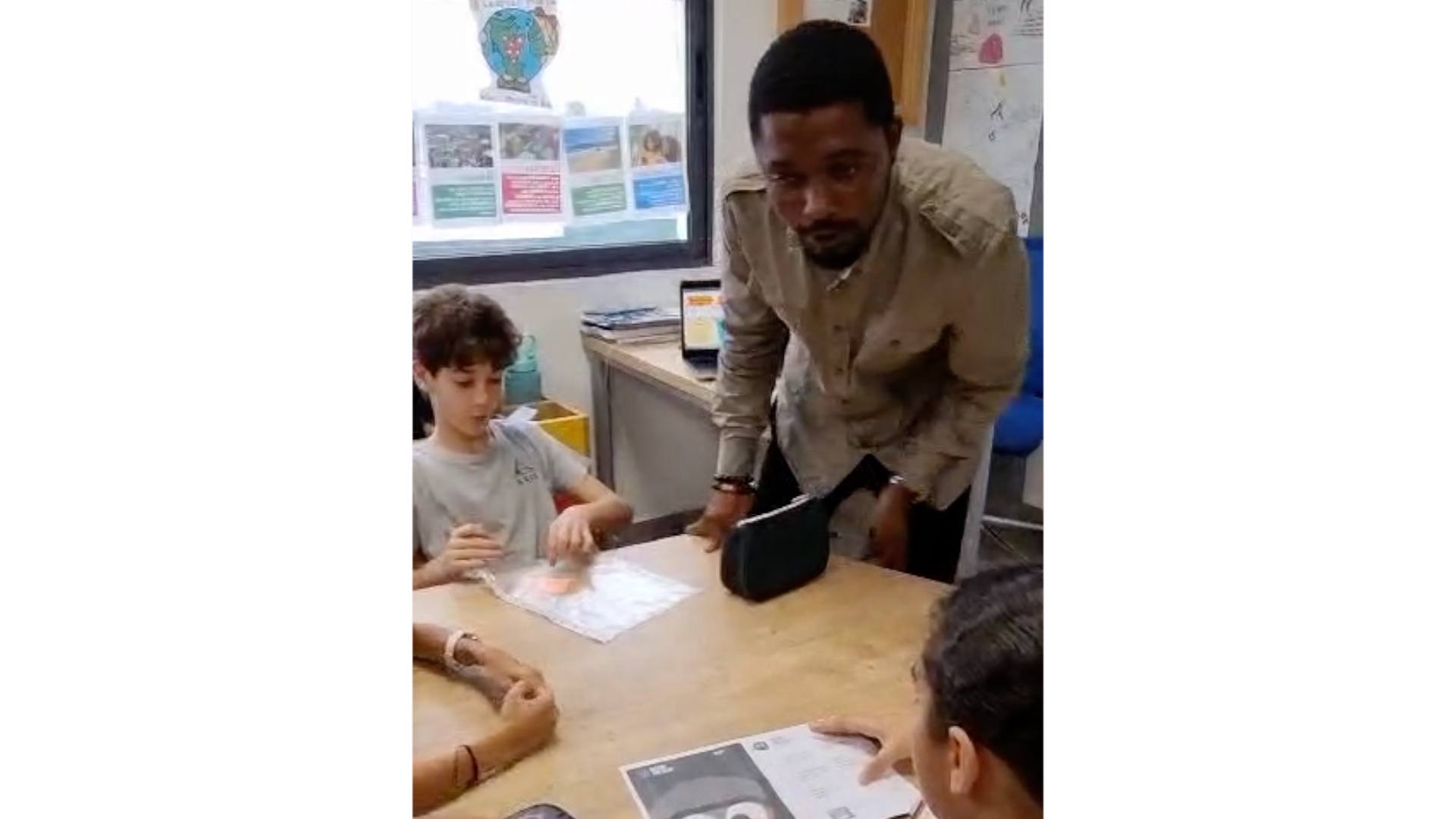Multiplying the Care Factor in the PYP
As anyone involved in the International Baccalaureate Primary Years Program knows, there’s a compass built in to every activity that eventually leads to a meaningful destination: The PYP Exhibition. It’s the ultimate culminating event and a public demonstration of each student’s commitment to the PYP learner profile attributes. Progressive school educational teams lean into the PYPx as their chance to promote the best outcomes among learners who are capable of showing great empathy as they learn to engage with the world around them.
Reaching for a New Level
Recent adaptations to the program at Al-Rayan International School in Ghana are taking 70 learners to new levels of empathy as the PYPx comes into view. And the genesis of this ARIS chapter seems strongly linked to the proactive approach taken by school leadership as they began welcoming knowledgeable partners to assist at multiple levels of planning and implementation.
A student considers ways that their personal interests are connected with the UN Sustainable Development Goals in a heart-mapping activity.
“When we started actually thinking about our exhibition we reached out to Inspire Citizens,” recalls ARIS PYP Co-ordinator Ayorkor Dankyi. Starting with Inspire Citizens Co-founder Aaron Moniz’s initial workshop with school leaders last autumn, Head of School Dr Fatma Odaymat arranged extended access to the coaching and practical resources of Inspire Citizens. Key divisional leaders, including Ayorkor, were invited to envision the outcome if greater empathy was nurtured in students as they move toward the PYPx.
“We were using a concept-based inquiry cycle that was working fine,” explains Ayorkor, “but after discussions with Aaron we saw more we wanted to incorporate into our exhibition this year.”
The next steps were to actively expand a critical stage at the outset of what’s known as the Empathy-to-Impact cycle: Care. By asking students to consider What do I really care about? and Why do I care so much about it? the locus of learning shifts inward to ignite a different type of curiosity. And the cycle of Care-Aware-Able-Impact starts off in a more heart-oriented direction.
From classroom to PYP Exhibition, the alignment of daily learning experiences with student interest and global concepts has been strengthened by an intentional emphasis on the “Care” part of the Empathy-to-Impact Cycle that is being implemented by ARIS and supported by Inspire Citizens.
A Heart-oriented Partnership
In fact, Inspire Citizens Facilitator Scott Jamieson launched his direct support of educators at the outset of 2024 by incorporating a “heart-mapping” activity in his interactions with the four senior PYP classrooms at ARIS. “Focusing on the Care aspect of the Empathy-to-Impact cycle we were able to help students better view themselves as changemakers,” says Scott. “We explored different global issues like sustainability, social justice and belonging, harmony with nature and holistic well-being.”
In Scott’s view, “the goal of this work is to have students go beyond ideation to take meaningful action in their community. Ideally, they will grow their impact potential by connecting with people in the community doing work in their chosen area to learn with. Then they will learn from community partners and gather primary source data from these interactions along the way.”
“As a regional hub, Accra is rich in opportunities for students to engage with local NGOs and a wide variety of community partners,” Scott explains, “But building these bridges takes time - I think this will be an ongoing process that we are only at the beginning stages of.”
Strengthening Student Agency
What this realignment is yielding at the level of student learning is already evident, though. ARIS educator Charity Mensah describes how students in her classroom elected to explore child poverty and came up with a set of questions themselves so they could better understand this critical global issue. “Students developed a stronger sense of agency to search for resources to share with their peers,” Charity explains. “For example, one of my students found a video that related to the effects of child poverty and the impactful action people can take. The student shared it with her team members for viewing and reflection.”
Emphasizing the Care part of the Empathy-to-Impact cycle is multiplying the outcomes of inquiry, says Charity. “It is making the students aware of the why behind their inquiry and shifting their focus to the reasons behind it all.” She adds that ,”they are becoming fully aware of why they are doing what they are doing. This makes them more engaged during their PYPx journey.”
Ayorkor agrees: “I see the outcomes of the exhibition already shifting” she says, referring to the specific student-driven pathways of inquiry. With pleasure, she notes how the change in emphasis is bringing student learning into alignment with the school’s broader goal of empowering students to “inspire, empower, and transform for a better world.”
Continue being inspired.
Discover the Empathy to Impact Podcast





